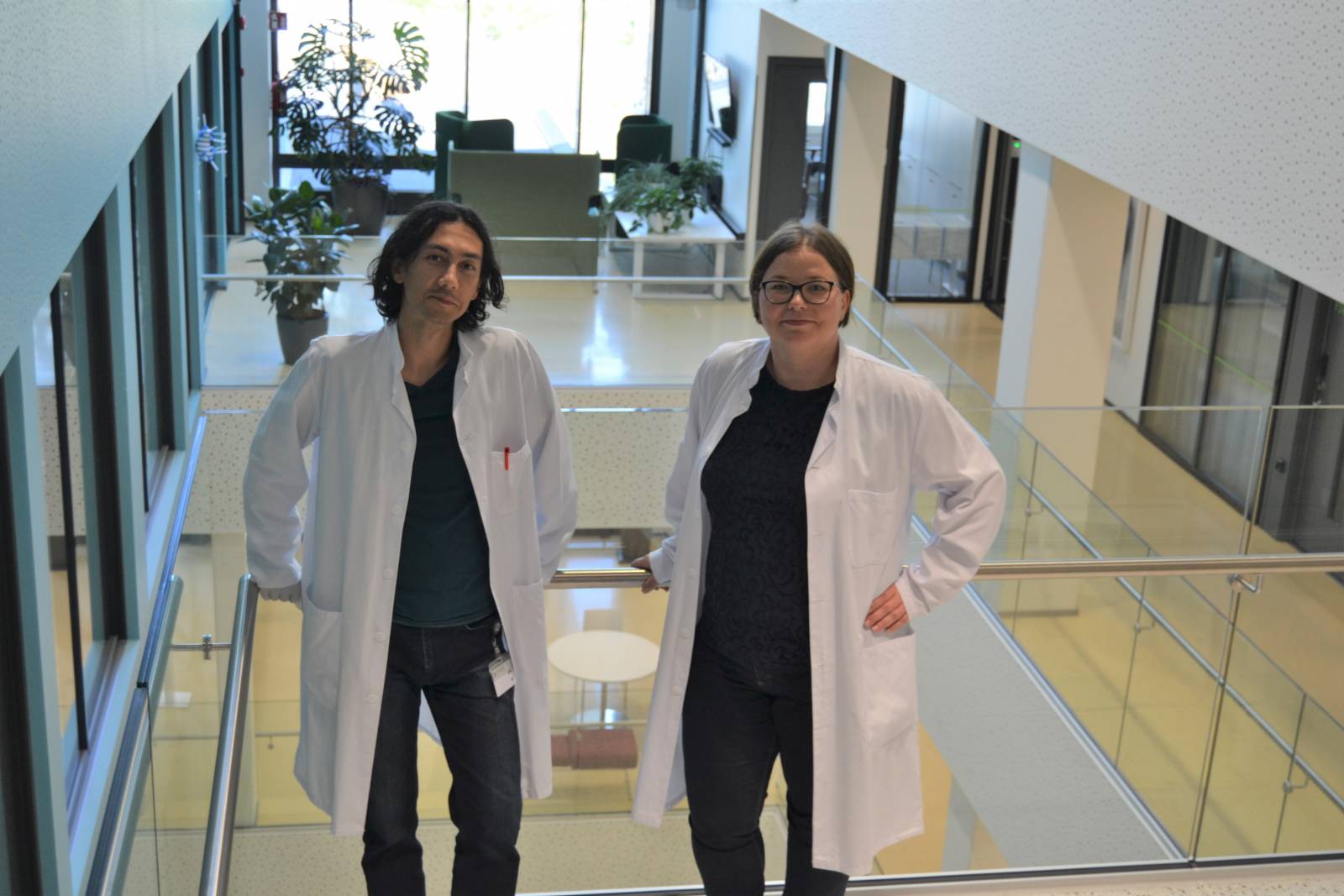CoEBoC is happy to announce successful new Academy of Finland projects in the NeuroGroup!
Sanna Hagman, PhD, has been granted with a five-year Academy Research Fellow funding for developing a human in vitro Multiple Sclerosis (MS) disease model. MS is an autoimmune demyelinating and neurodegenerative disease of central nervous system (CNS). 15% of patients suffer from the primary-progressive (PPMS) disease course which results in faster irreversible disability accumulation compared to the other form, relapsing-remitting MS (RRMS). Disease management of PPMS patients is challenging due to marginal therapeutic options.
In the granted project, Sanna Hagman with her team will develop a human in vitro MS disease model, in which astrocytes pathogenic function on the inflammatory environment and their co-operation to microglia, B-cells and neuron is investigated. Our ultimate goal is to develop a platform that is utilized for understanding pathogenic events in MS and finding new therapeutic targets. Important players in the pathogenesis of PPMS are CNS-resident cells astrocytes and microglia and peripheral B cells and macrophages, however, their mechanism of action is poorly known. In addition, results of the preclinical studies are poorly translated to the human situations, since majority of clinical trials fails after being successful in the preclinical phases. Therefore, in this project, we model brain cell functions by utilizing human cells that are produced with stem cell technology and developed model is built on microfluidic chip.
This research will produce innovative information of mechanism of MS disease that enables development of preclinical in vitro cell culture model to study the effect of new neuroprotective therapeutic strategies and discovery of new biomarkers. The research is conducted at close collaboration with the Academy of Finland funded Centre of Excellence in Body-on Chip research (https://research.tuni.fi/coeboc/).
More information
Sanna Hagman, sanna.hagman@tuni.fi
https://orcid.org/0000-0002-3950-7736
https://www.tuni.fi/en/sanna-hagman
Emre Kapucu, PhD (in Tech), has been granted by Academy of Finland for three-year postdoctoral project on developing on-chip model for Parkinson’s Disease (PD). PD is a disorder of the central nervous system (CNS) and the second most common neurodegenerative disease without absolute cure. Disease has progressive effects on patient’s CNS, which gradually influence the life quality negatively. One of the most known pathological features of PD is the accumulation of misfolded assemblies of specific protein, α–synuclein (AS). Normally, AS is mainly located in the synapses participating in synaptic transmission by binding to synaptic vesicles. In pathological case AS start misfolding and accumulating. Accumulation of pathologic AS leads to reduction of synaptic proteins, progressive impairments in neuronal excitability, synaptic activity and network connectivity, and eventually, neuronal death. For this reason, it is very important to reveal the early disease markers both for diagnostics and novel therapeutics during pathological AS accumulation and propagation.
In the funded project Emre Kapucu will use an innovative approach: simultaneous measurements of calcium deviations and extracellular electrophysiological signals of the neuronal cells cultured on microfluidics structures. This model allows to make a detailed electrophysiological interpretation of in vitro neuronal behavior during pathological AS accumulation and propagation. With the model, both axonal and neuronal network level (dys)functionality are monitored and temporally defined in relation to the disease progression. Such information is used to investigate potential electrophysiological markers for the early stage and subsequent propagation of the pathology. Additionally, with the different treatment regimens, electrophysiological patterns of the pathological neural cells and populations during these treatments will be acquired.
In the later stages of the research, the aim is to develop early screening methods for PD as well as introducing new standards to validate therapeutic approaches and drug candidates. The research is conducted at the Academy of Finland funded Centre of Excellence in Body-on Chip research consortium (https://research.tuni.fi/coeboc/).
More information:

